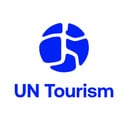UNWTO Champions Tourism for a Healthy Planet at Stockholm+50
UNWTO joined high level representatives from Environment Ministries, International Organizations and UN Agencies to consolidate tourism’s commitment and position as a high impact sector for accelerating sustainability.
The special One Planet Forum was hosted by the One Planet Secretariat (UNEP) in association with the Stockholm +50 International Conference, to mark 50 years of global environmental action. Important commitments were made to shift business behaviour and promote circular economy and investments in sustainable consumption and production during plenary discussions on “Investments in people and nature”.
The catalytic role of the Glasgow Declaration on Climate Action in Tourism was highlighted – reaching 600 signatories in 6 months - by UNWTO Executive Director, Ms. Zoritsa Urosevic. Visit Finland announced its signature to the Glasgow Declaration and Mastercard reiterated its support to help make tourism destinations more sustainable and inclusive by co-developing new digital solutions.
“Finland's tourism product is sensitive to the effects of the warming climate. It is important to secure the business opportunities and jobs within the industry. The development of low-carbon travel options, experiences and destinations must be secured. The Finnish tourism industry is committed to a common goal and has joined forces. Today, 60 travel organizations from Finland have signed the Glasgow Declaration on Climate Action in Tourism.,” said Kristiina Hietasaari, Senior Director, Visit Finland.
In 1972, there were 189 million international tourism arrivals, and this grew almost tenfold up to the start of the pandemic. Today, international tourism arrivals are at the levels of 1992– precisely the time where the Rio Conventions on Climate Change and Biodiversity Protection were adopted, guiding our sector’s environmental action.
Tourism’s contribution to sustainable development has been recognized in the Sustainable Development Goals. As the sector recovers from the pandemic, there is a growing uptake by tourism stakeholders to scale-up environmental action and inclusiveness.
But how will the new consumers trends stimulate change? During the workshop on “Green nudges for increasing the circularity of plastics”, organized jointly by the One Planet Sustainable Tourism Programme and the Sustainable Lifestyles Programme in collaboration with the government of France and UNEP, tourism stakeholders explored the application of behavioural science to implement environmental policies at destination level. The report “A Life Cycle Approach – Key messages for tourism businesses to address single-use plastics”, produced within the framework of the Global Tourism Plastics Initiative, was also released in all UN Languages.
UNWTO Secretary-General, Mr. Zurab Pololikashvili will address the plenary of Stockholm+50 on Friday, to be opened by UN Secretary-General, Mr. Antonio Guterres, on 3rd June.
RELATED LINKS
- Glasgow Declaration on Climate Action in Tourism
- Global Tourism Plastics Initiative
- One Planet Forum
- The One Planet Secretariat
About UN Tourism
The World Tourism Organization (UN Tourism) is the United Nations agency responsible for the promotion of responsible, sustainable and universally accessible tourism.
As the leading international organization in the field of tourism, UN Tourism promotes tourism as a driver of economic growth, inclusive development and environmental sustainability and offers leadership and support to the sector in advancing knowledge and tourism policies worldwide.
Our Priorities
Mainstreaming tourism in the global agenda: Advocating the value of tourism as a driver of socio-economic growth and development, its inclusion as a priority in national and international policies and the need to create a level playing field for the sector to develop and prosper.
Promoting sustainable tourism development: Supporting sustainable tourism policies and practices: policies which make optimal use of environmental resources, respect the socio-cultural authenticity of host communities and provide socio-economic benefits for all.
Fostering knowledge, education and capacity building: Supporting countries to assess and address their needs in education and training, as well as providing networks for knowledge creation and exchange.
Improving tourism competitiveness: Improving UN Tourism Members' competitiveness through knowledge creation and exchange, human resources development and the promotion of excellence in areas such as policy planning, statistics and market trends, sustainable tourism development, marketing and promotion, product development and risk and crisis management.
Advancing tourism's contribution to poverty reduction and development: Maximizing the contribution of tourism to poverty reduction and achieving the SDGs by making tourism work as a tool for development and promoting the inclusion of tourism in the development agenda.
Building partnerships: Engaging with the private sector, regional and local tourism organizations, academia and research institutions, civil society and the UN system to build a more sustainable, responsible and competitive tourism sector.
Our Structure
Members: An intergovernmental organization, UN Tourism has 160 Member States, 6 Associate Members, 2 Observers and over 500 Affiliate Members.
Organs: The General Assembly is the supreme organ of the Organization. The Executive Council take all measures, in consultation with the Secretary-General, for the implementation of the decisions and recommendations of the General Assembly and reports to the Assembly.
Secretariat: UN Tourism headquarters are based in Madrid, Spain. The Secretariat is led by the Secretary-General and organized into departments covering issues such as sustainability, education, tourism trends and marketing, sustainable development, statistics and the Tourism Satellite Account (TSA), destination management, ethics and risk and crisis management. The Technical Cooperation and Silk Road Department carries out development projects in over 100 countries worldwide, while the Regional Departments for Africa, the Americas, Asia and the Pacific, Europe and the Middle East serve as the link between UN Tourism and its 160 Member States. The Affiliate Members Department represents UN Tourism's 500 plus Affiliate members.
UN Tourism Communications Department
+34 91 567 8100
UN Tourism
